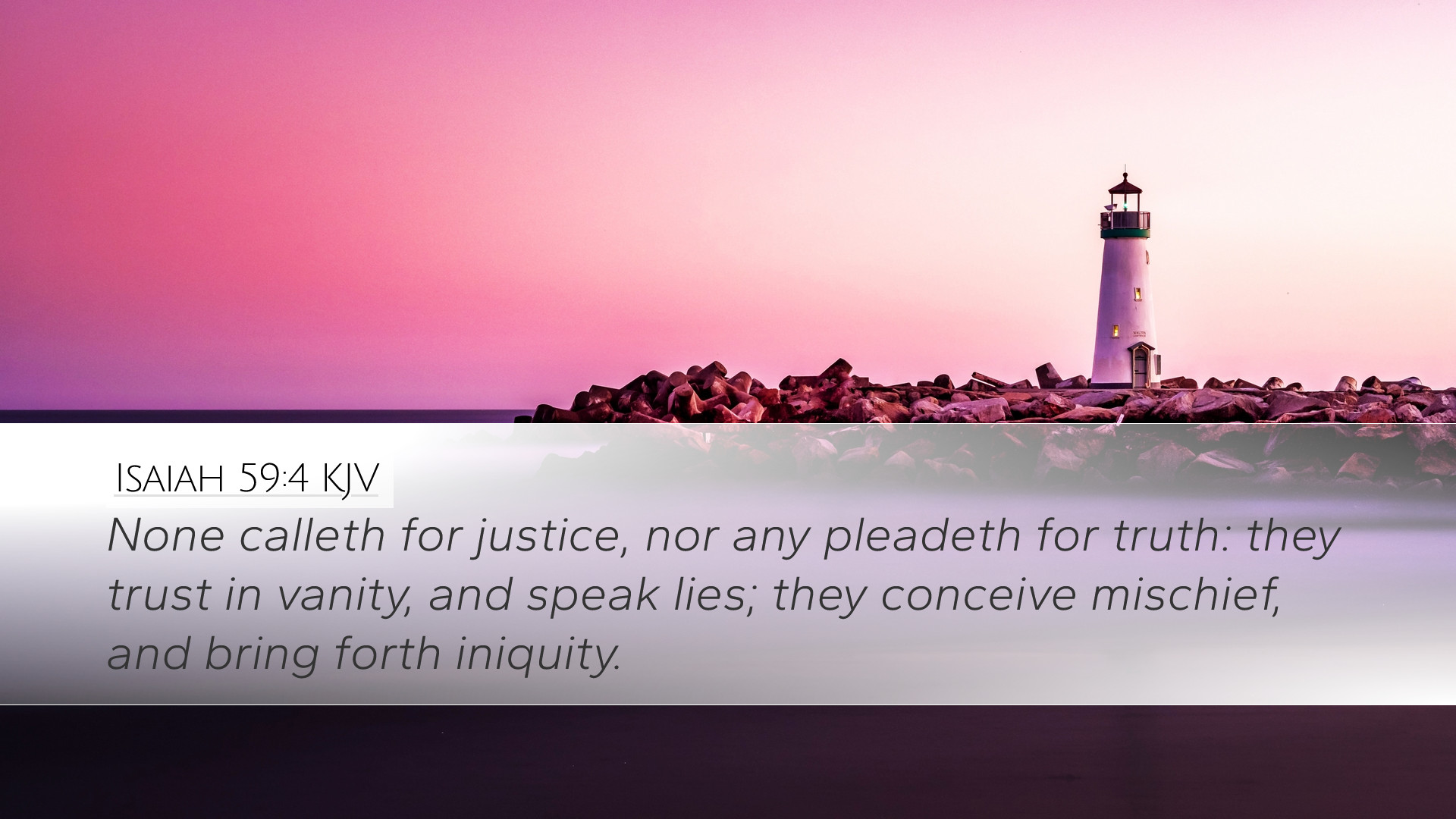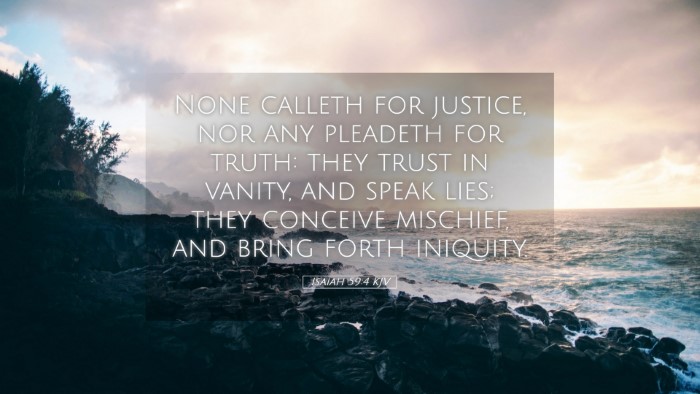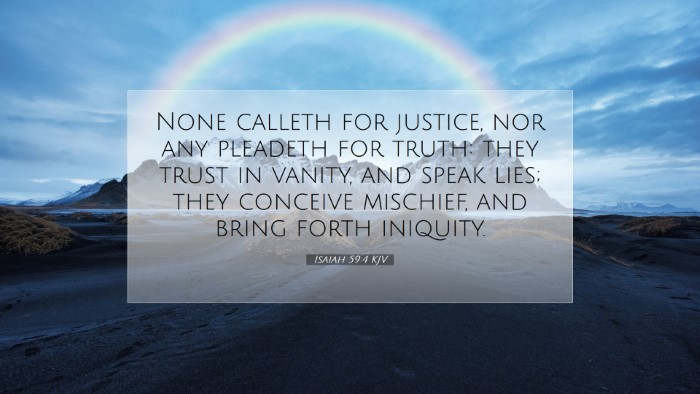Commentary on Isaiah 59:4
Verse: "None calleth for justice, nor any pleadeth for truth: they trust in vanity, and speak lies; they conceive mischief, and bring forth iniquity."
Introduction
This verse from Isaiah 59 highlights a critical observation of societal and moral decay during Isaiah's time. The prophet articulates a situation where justice is neglected and truth is abandoned, signaling a profound spiritual crisis. As we delve into the insights of various public domain commentators, we will explore the implications of this verse for both its original audience and for contemporary readers.
Analysis of the Text
The verse serves as a reflection on the moral state of the people. Here, we will extract insights from prominent theologians such as Matthew Henry, Albert Barnes, and Adam Clarke.
Matthew Henry's Commentary
Matthew Henry emphasizes that the absence of calls for justice indicates a deep-rooted corruption within society. He notes:
- The phrase "None calleth for justice" suggests a collective apathy towards righteousness. Henry argues that such neglect often arises from a lack of moral conviction and societal standards.
- He further points out that the rhetorical question implies that both individuals and leaders have become indifferent to the pursuit of truth, revealing a spiritual malaise.
- Henry stresses that speaking lies and trusting vanity are indicative of a spiritual state where people prefer deception over the truth, leading to pervasive immorality.
Albert Barnes' Commentary
Albert Barnes provides a broader analysis by relating the verse to the consequences of sin:
- Barnes highlights the idea of 'pleading for truth', which he interprets as the people’s failure to advocate for justice, instead opting for error and deception. This can be seen as a critique of societal structures where justice is compromised.
- He links the term "vanity" to the futility of relying on falsehoods, noting that such trust leads to disastrous outcomes. He explains that without a firm foundation of truth, communities become vulnerable to chaos and disarray.
- Furthermore, Barnes discusses the imagery of 'conceiving mischief', likening it to the birth of iniquity—suggesting that wickedness starts in the heart and mind before it manifests in action.
Adam Clarke's Commentary
Adam Clarke brings a linguistic and contextual perspective to the verse, stating:
- Clarke analyzes the Hebrew terms used, particularly focusing on the implications of 'justice' and 'truth'. He explains that the original language encapsulates a sense of divine order that is being disrupted.
- He comments on the societal implications of widespread falsehoods, asserting that a community that forsakes truth inevitably invites destruction and moral decay.
- Clarke’s interpretation aligns with a prophetic call to repentance, suggesting that recognition of these failures is the first step towards restoration and return to God’s justice.
Theological Implications
As we synthesize these insights, several theological implications emerge:
- The Nature of Sin: The text vividly illustrates that sin is not merely an individual act but a communal state that affects justice and moral integrity.
- The Role of Prophets: Isaiah’s role as a prophet highlights the necessity of speaking out against injustice. It serves as a reminder to contemporary spiritual leaders about their duty to call society back to the principles of righteousness.
- Hope for Restoration: While the verse paints a grim picture, it is essential to note that prophecy often carries a thread of hope. Acknowledgement of moral failures can lead to revival and a return to God’s standards.
Application for Today
This commentary invites pastors, students, theologians, and scholars to reflect on the present state of justice and truth in their communities:
- Evaluate societal standards: How does the neglect of justice manifest in today's world? What can be done to address these issues?
- Encourage dialogue on truth: Facilitating conversations about truth and its relevance in contemporary life can help navigate the complexities of modern beliefs.
- Promote justice: Actively advocating for justice in community engagement reflects a commitment to uphold the teachings of Scripture in practical ways.
Conclusion
Isaiah 59:4 serves as a potent reminder of the eternal struggle between truth and falsehood, justice and injustice. The commentaries of Matthew Henry, Albert Barnes, and Adam Clarke provide timeless insights into the ramifications of abandoning these core principles. For readers today, the call to uphold justice and truth remains as relevant as it was in the days of Isaiah. As practitioners of faith, it is imperative to discern, advocate, and embody these principles in every aspect of life.


